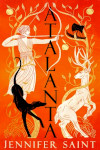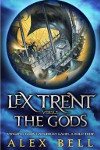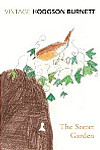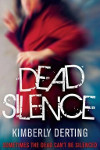David Nicholls – One Day
Posted 15th December 2010
Category: Reviews Genres: 2000s, Chick-Lit
2 Comments

We may know the answer well, but when it comes to actually acting on it why do we generally jump ship?
Publisher: Hodder
Pages: 433
ISBN: 978-0-340-89698-3
First Published: 2009
Date Reviewed: 19th November 2010
Rating: 3/5
Dexter and Emma were acquainted during university, and Emma fell for Dexter pretty much instantly; but it isn’t until their graduation that they finally hook up. This doesn’t equate to happy ever after however, due to silly reasoning and steadfast views. There’s definitely something there though, and it seems there always will be, no matter what happens along the way.
I have to admit disappointment, and a lot of that has to do with the rave reviews I’ve read (I’ve not found a negative one yet) and all the quotations on the cover of the book from well-known authors. Why the disappointment? For one, I’m afraid that the book is far too similar to Cecelia Ahern’s Where Rainbows End, which I read a few years ago. While Ahern’s book isn’t exactly stellar, it is dramatic, bold, contains enough angst, and ends in the way you’d expect – whereas One Day isn’t as engrossing and the idea of only including a single day of each year becomes off-putting when you realise you don’t know half as much about the characters as you should do. There is also the fact that Nicholls has to fill you in on all the days you’ve missed in-between, and because he’s used the same date every year there are a lot of events referred to that you can’t help but think would’ve made for a better book, had they been included.
The characters are alright, but as previously discussed you don’t get enough time to know them. This is a shame because it’s akin to knowing that the person you just struck up a conversation with would be a fantastic friend for you – if only protocol didn’t dictate that now you must go your separate ways because the party has ended and that at this stage in your acquaintance asking for phone numbers would be too forward.
The climax comes several chapters before the end, leaving you wondering why – and then you find out as a second climax rears its head. This second climax is unfortunately very cliché. It isn’t predictable but upon reading it I just wanted to groan.
One thing Nicholls does do well is raise a few laughs, and there are some great extracts, humorous and not so, which I’m adding here so that you don’t wonder why I’ve given this book better-than-half marks when it seems like I’m giving it zero:
…this would be the third girlfriend, lover, whatever, that she had met in the last nine months, Dexter presenting them up to her like a dog with a fat pigeon in his mouth.
“It’s like everyone has a central dilemma in their life, and mine was can you be in a committed, mature, loving adult relationship and still get invited to threesomes?”
“And what’s the answer, Dex?” she asked, solemnly.
“The answer is no, you can’t. Once you’ve worked that out, it all gets a bit simpler.”
“It’s true; an orgy won’t keep you warm at night.”
“An orgy won’t care for you when you’re old.”
It takes until the very, very end before Nicholls finally divulges what happened at the start of the friendship, the day after the one he talked about, but this is cut short and, to use the dog and pigeon metaphor afforded by Nicholls himself, as soon as you think he’s presenting you his finds and you reach towards them, he snatches his head away and runs off with the pigeon. Some details you will never know.
And it’s a great pity really, because similarities with Ahern aside this could have been a very good book.
Related Books
None yet
Emily Brontë – Wuthering Heights
Posted 8th December 2010
Category: Reviews Genres: 1840s, Angst, Domestic
2 Comments

Has fiction ever seen such a wretched anti-hero?
Publisher: (Numerous, but I’d wager Vintage would be a good one)
Pages: N/A
Type: Fiction
Age: Adult
ISBN: N/A
First Published: 1847
Date Reviewed: 3rd December 2010
Rating: 4/5
The general idea is that Wuthering Heights is a fantastic romance, but dig a little deeper and you’ll find that it’s a terrible story of hate and obsession. This was my discovery upon opting to read Emily’s work, having remembered how much the Laurence Oliver movie adaptation focused on romance. To say I had no clue would be an understatement.
The Earnshaws lived a good life until the father brought Heathcliff home. Cathy Earnshaw and Heathcliff become incredibly close, but Cathy’s violent nature and Heathcliff’s hate of her brother provoke revenge when Mr Earnshaw dies. Power will shift back and forth and when Cathy chooses wealth over love Heathcliff’s nature degrades itself further. It won’t just be the Earnshaws who suffer his bitterness.
The story is in a narration of two layers, you have the reason for the story being narrated, Mr Lockwood who recently rented the old Linton property (Linton being the wealthy family Cathy married into), and Ellen, or Nelly, his housekeeper who is the one to tell the tale. In a way this set-up is odd, as Lockwood has nothing to do with the family, and is a rather rude person himself – at times it seems he wouldn’t make such a bad companion for Heathcliff – but it does allow for the story to move beyond the lives of the couple.
This is where defining the novel becomes difficult. Emily’s writing is good and generally easy to read. The technical side is alluring and for this reason it’s a brilliant piece of work. But then comes the story, which is painful to the extent of making you wonder what was going on in the author’s head. How do you rate a novel containing such extremes? In giving the book the rating I have, I’ve examined more factors than I usually do on other occasions because lauding the book as literary critics do is impossible, but shunning it is also equally impossible. The only thing I can really say is that this is a classic for the writing’s sake but there is nothing else to give it the clout.
I suppose I should list “romance” as one of the genres of this book, but I’m afraid I don’t see any romance in it. Not even violent love relationships. I don’t believe Heathcliff has a romantic bone in his body and any other relationships aren’t explored enough to warrant it.
To refer to the “generally” good writing of Emily, it becomes most intolerable when Joseph is speaking. Yes it can be helpful to have the dialogue of a person with an accent written in that accent, but when the person becomes incoherent due to the inability of letters to successfully dictate their words it’s surely more a hindrance. Perhaps more so than Heathcliff, the bane of this book is the amount of space given to Joseph, whole paragraphs in what is essentially a severe case of broken English. The structure of it means that after a few words you might be starting to gain an understanding of how Joseph speaks, but then you’re thrown by words appearing to be in an entirely different accent. For the most part I guessed Joseph was from Yorkshire, but sometimes he sounded like a Londoner.
Cathy and Heathcliff are made for each other, even if Heathcliff is truly violent and Cathy’s violence more childish. There are no words to describe just how awful Heathcliff is, and, as I wrote in my diary, even if he isn’t literally a devil, he is surely more evil than Lord Voldermort of Harry Potter, than Sauron of The Lord Of The Rings, and so on. The reason I say this is because Emily has detailed him so meticulously and we are given no motives for why he is like he is, Cathy’s rejection aside. Suffice to say all the other characters, with perhaps the exception of Joseph and Linton (don’t get me started on him), are good to read about. Although Emily does attempt to make you feel for Heathcliff, when Hindley is treating him badly, you never can because, to use a childish phrase, Heathcliff started it. As a reader you hope the other characters would have a bit more courage and emotional strength, the constant thought is why don’t they just leave? The only answer I can come to is that their helplessness stems from their culture and time period.
There are some particularly horrid scenes in which Emily pushes the emotional boundaries a little too far, but one thing that can be said is that it’s difficult to get used to the violence no matter how many of Heathcliff’s “episodes” you witness.
“Tell your master … I’ve sometimes relented, from pure lack of invention, in my experiments on what she could endure, and still creep shamefully cringing back! But tell him also, to set his fraternal and magisterial heart at ease, that I keep strictly within the limits of the law…”
The location of the story is apt, a dark and often dreary moor that Emily uses liberally in place of standard pathetic fallacy. The setting does of course make reading the story more difficult as the characters not only spend most of their time at home – and what time they do spend away you only hear reports of – but they spend it in the same few rooms.
When I approached Wuthering Heights, I brought, along with all my incorrect assumptions, the hope that Emily would bring me a joy similar to that of her sister Charlotte. But as much as I loved Emily’s writing style I’m not sure I’ll want to read Wuthering Heights again because of Heathcliff. An anti-hero with no legitimate reasons for acting so poorly is not someone I want to read about twice.
Wuthering Heights is a hideous creation created spectacularly. It is definitely worth the read to experience Emily’s writing but the story pales in comparison to Jane Eyre. Never hold any hope for the story turning positive, because baring a small redemption it’s content is nothing but malicious.
Related Books
Kelly Hunter – Exposed: Misbehaving With The Magnate
Posted 21st November 2010
Category: Reviews Genres: 2000s, Domestic, Romance, Social
1 Comment

I know, I know, I know. I’ve thrown away my – hopefully good – taste in books and settled for a trashy novel. I’m no longer a Mills & Boon virgin.
Publisher: Mills & Boon
Pages: 138
ISBN: 978-1-408-90710-8
First Published: 2009
Date Reviewed: 4th November 2010
Rating: 2.5/5
When I was a young teenager, and asked an adult about Mills & Boon, a publisher I’d heard of, the response was less than positive. I was told that they produced the worst books, riddled with sex, and were completely pointless. I took it to heart, but ever since I’ve been meaning to rebel, because the opinion had been so awful I just had to see what was so bad, and having a laugh at a cheesy book sounded a fun idea.
So when I found out that Mills & Boon were providing free ebook downloads of some of their titles I acted the wanton lass and downloaded them all so that I’d have a number of novels to choose from. I wanted the most sex-laden book possible without breaking the barrier into full-on erotica. Downloading was good, because no way in heck was I going to walk up to a counter in a bookshop with a seedy-looking book in tow.
Out of the 12 I chose to read Hunter’s book, lured by the bright cover image (different to the one shown in this review). It sounded the least dodgy and relatively cheese-free. The plot was thus:
Gabrielle left France unwillingly when she was caught kissing her mother’s boss’s son (the heir to his family’s castle and wine industry). Her mother, the housekeeper, believed Gabrielle’s association with a man of a far higher social class unbecoming. But now Gabrielle is back, and she never had managed to get over her feelings for Luc. It’s quite possible that he never got over her either.
I was very surprised that it took so long to get to the sex. There I was expecting it soon and expecting it rampant and instead by page 50 Hunter was still trundling along detailing vineyards and the wine business. I went to make a coffee. Whether this is usual for the genre I have no idea, but I did start to wonder if this would be any “worse” than an Elizabeth Chadwick novel, where the sex is passionate but the history equally important. When the sex did finally arrive it was steamy, and actually not all that different to a regular fiction book. There was little to cringe at and the basis of the relationship was an all-consuming and true love.
Which brings me to the writing; it was quite good. Again I was surprised, and very happy to find no spelling mistakes whatsoever, which is more than can be said for most mainstream fiction. The plot was well developed and there was plenty of information about what goes on backstage in the wine industry (and no, I’m not meaning sex).
There were a good few issues covered; one that was explored in detail was the relationship between Gabrielle and her mother. The social standing of the people didn’t make me feel separated from the story; it was simply that they just happened to have money. The characters were solid and although there wasn’t sufficient time to really get to know who they were, the details were ample enough.
So yes, I’ve been shocked at my foray into this genre, but I’m aware that my previous opinions gained from hearsay may have been too harsh anyway. Maybe I didn’t really know what Mills & Boon were about.
The cover of my copy was scandalous but in fact this is a story of people who could never love anyone else the way they love each other. I wouldn’t recommend it as something you should make a point of reading, but if you happen to come across it and have nothing else to do I’d say it’s not such a terrible use of time.
Related Books
None yet
Kimberly Derting – The Body Finder
Posted 12th November 2010
Category: Reviews Genres: 2010s, Paranormal, Romance, Thriller
1 Comment

If she can find the dead, can she find the killer too?
Publisher: Headline
Pages: 327
Type: Fiction
Age: Young Adult
ISBN: 978-0-7553-7895-1
First Published: 16th March 2010
Date Reviewed: 3rd November 2010
Rating: 4/5
Violet Ambrose has an uncanny ability – she can sense the “echoes” from the dead bodies of people who’ve been killed. So when the disappearance of young women becomes a regular occurrence in her small hometown, Violet is the first one to know. But at the same time she’s struggling with her feelings for her best friend, feelings that have changed since the last school term. She’s changed, he’s changed, but has he changed in the same way she has?
I’d had only fleeting contact with this book before I read it, seeing the cover a few times but feeling completely uninterested. Like many paranormal books for teenagers at present, the base colour is black, but rest assured, this isn’t Twilight, not in the least. Yes, it shares a few features: a prom, a gushy romance, and maybe Violet gets into some awkward situations, but in the main is it difficult to so much as guess where the author might have got her ideas from.
There is a real sense that Derting wants to impart advice to her readers, but she never goes overboard, instead speaking the same as any parent but going further by telling a detailed narrative about why one should listen to those warnings. What’s interesting is that while the book reads as a fictional account, and a lot of emphasis is placed on everything else unrelated, when it comes to the sections solely about the killer Derting doesn’t paint over it – while she doesn’t present the most harrowing story she works well within the parameters she’s set herself.
Surprisingly, although when generalised you would say this story focuses on death, there is a great amount of romance in the book. This is what makes it a story for younger readers, and certainly it’s an appropriate account of love for the target audience. Derting limits how far the couple go while straying a little past the usual borders, and although it can become soppy at times she always remembers to create mini conflicts in a way that pushes any bubble, that may have been forming over the couple, far away.
This leads to the characters in the book. Violet exudes confidence, and her lack of love for her appearance is but a realistic flaw. She only ever becomes helpless in understandable circumstances, and the times when she goes against common sense are explained – there is always a good reason for it. Romance-wise, when Violet starts to lean perilously close to drooling she tends to remember that feigned spite and disagreements are often fun. This girl walks into danger all the time, but she knows the risks, and when Jay comes to protect her she gets angry. I assure any would-be reader, in lure of the current batch of damsels, that like Jenny from The Forbidden Game, this is someone to really root for.
Jay is much the same as Violet, and he only appears as less daring because he’s not the major character. Jay can command, but he’ll also follow. His hero moments work because of Violet’s tendency to walk into jeopardy, and when he does get angry it’s logical.
The writing is very undemanding of the reader and the book quick to get through. The subplots always serve a purpose and the story is told without any particular drifting into unnecessary areas – which is more than can be said of Violet.
Although much of the ending is predictable, the climax itself isn’t, and if the loose threads are dealt with too quickly then it’s reasonable as a second book will be released shortly.
In The Body Finder, Derting puts a number of genres onto a plate and mixes and matches until she has ample quantities of each while sticking to the overall expectations that events of the past few years have created in young readers. She goes beyond what a lot of writers have been doing, unafraid to break the mould. It’s compelling without being too compelling, worrying without being too scary, and damn sexy whilst resisting sex.
The question now is will the echo from this book reach you?
Related Books
Maria McCann – The Wilding
Posted 4th November 2010
Category: Reviews Genres: 2010s, Domestic, Historical, Social
6 Comments
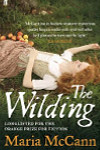
Most likely your unremarkable life is full of the remarkable.
Publisher: Faber
Pages: 333
Type: Fiction
Age: Adult
ISBN: 978-0-571-35187-2
First Published: 4th February 2010
Date Reviewed: 1st November 2010
Rating: 4.5/5
In 1672, Jonathan Dymond’s routine – living with his parents, making cider for the neighbours in autumn – comes to a halt upon the death of his uncle Robin. His father is upset that he didn’t make it to the deathbed in time and Jonathan is harrowed by a dream in which the ghost of his uncle accosts him along the road. Jonathan wants answers and it just so happens that, his aunt having an orchard herself, she might have a place for him; he goes under the guise of cider maker. There’s a strange servant at aunt Harriet’s, a girl who is very forward. And then one day she disappears. Something’s up, and it’s more than simply his father’s upset and his aunt’s formidability. Jonathan’s found a mystery to solve and by God will he solve it, no matter what happens to him.
When I picked up The Wilding I was expecting a story that would trundle along like a wooden cart, and for the most part this is indeed what happens. What is so unique about the book is that McCann involves a mystery to solve but doesn’t make it all that compelling until later on, instead she focuses more on life at the time and social issues. This may sound off-putting but it enables the story to rest gently over a number of genres and thus exhibit appeal to readers of many persuasions.
For the characters, The Wilding is unlike any other story I’ve ever read of this time period. There are differences in class and wealth but there are no extreme riches, or poverty without any sort of redemption. Everything happens within a radius of several miles and most journeys are made for cider.
“I marvelled at the shamelessness with which she turned thanks inside out. She was not a vagrant for nothing: here was one who could beg an apple peel and end by carrying away the tree.”
Tamar is a wonderful character. She has been so well created and written by McCann that she is real beyond any other character I have come across. For the first time in my life (that I can remember) I have been able to form a character head to toe in my imagination without resorting to an actress or someone from my own life. My Tamar is true flesh and blood, a real person with movable features, except that she resides solely in my head. And yet McCann’s writing doesn’t seem, when you’re reading it, to possess any special quality – but my inability to create a face has waned, at least for now. I may see Jonathan as a faceless narrator (which is the usual way I see characters) and Aunt Harriet as Pam Ferris (a result, I believe, of having watched the TV adaptation of Jane Eyre recently) But I’m glad to have one fully-fledged character in my head at last.
And the best bit of that? My Tamar has not in any way been influenced by the girl on the book’s cover. Except for the red hair, of course.
To move away from my cooing, Jonathan Dymond, the narrator, has been perfectly created – being not so much the subject but certainly the reason, he is provided with a lot of emotion and is always rethinking issues while allowing the focus to be on the other characters. He’s an average working class citizen of the day, with a very interesting family.
McCann deals with a number of issues that have eternal relevance; these she discusses quickly and skilfully. As an example, she touches on prostitution, saying that being with so many men for such a reason as money a woman can become deadened to emotions during sex and unconcerned about the man afterward. This may sound bad, but it’s something that the narrator must talk about during the book and you have remember that the woman in question is young and ignorant in ways.
The text is mainly modern but McCann sometimes writes in the way people of the time would’ve spoken. The modern language, made more realistic by the social standing of the characters makes the narrative easy to follow. One of the initial secrets is no hardship to work out dozens of pages before it’s revealed, but this was quite possibly something McCann meant to happen for reasons that you will understand when you read it.
As the book revolves around a family, the emphasis is on them and their daily lives rather than any key moments in history. A few events, and some fictional yet all too possible ideas, are looked into but briefly. This isn’t a book for learning about the period so much as a book for those who want to live it themselves.
Because on the face of it, McCann’s writing is nothing special, I’m wondering if she enlisted Joan’s help in making it come across as enthralling. If nothing else she definitely stole an amulet from the thorns at the front of the cave. The Wilding will let you breathe for a long time before it takes your breath away. But once it does, you might not get it back.
Related Books
None yet











